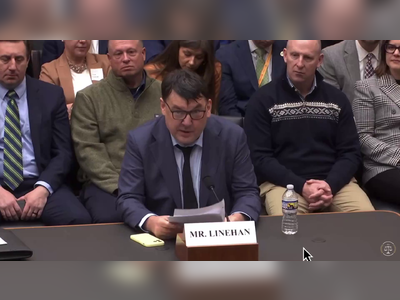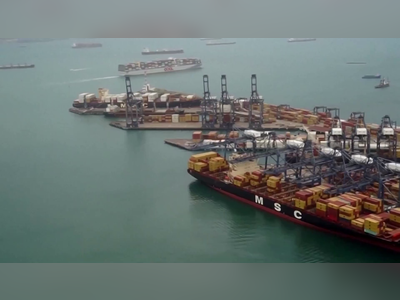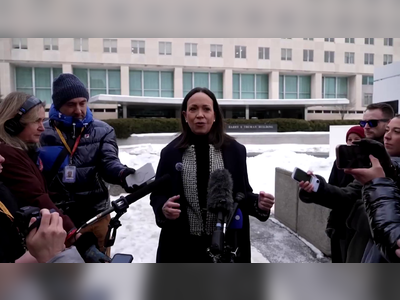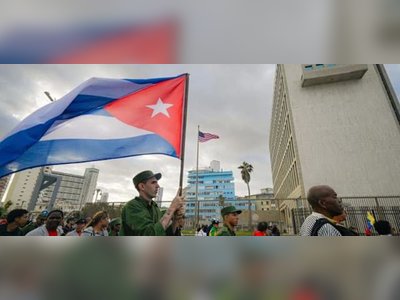Saprissa Withdraws from Costa Rica's Women's Soccer First Division, Sparking Debate and Concern
The decision by Deportivo Saprissa to halt participation in the women's top league has drawn mixed reactions and highlights structural challenges facing women's soccer in Costa Rica.
On January 9, 2025, Deportivo Saprissa, a key player in Costa Rica’s women’s football, announced its withdrawal from the country's First Division league.
The decision has sparked widespread discourse on the future and current state of women’s soccer in the region, amid growing concerns about structural issues affecting the sport.
Deportivo Saprissa, an institute renowned for fostering talent across their male and female teams, cited a deep-seated crisis within women's football, characterized by diminished media interest, faltering sponsorship deals, and increasing financial inequalities, leading to economic losses for multiple clubs.
In recent years, similar challenges have forced other clubs to exit mid-season, echoing a broader concern within the community.
Prominent voices within the sport expressed varied sentiments regarding Saprissa's decision.
Jacqueline Álvarez, a former player, publicly censured the club for what she termed a 'lack of commitment,' accusing the management of abandoning the team amidst competitive setbacks.
She lamented the disparity in conditions for male and female players, despite the evident talent within Saprissa’s women's team.
Carlos Avedissian, a seasoned coach and former national team manager, described the situation as worrying, emphasizing Saprissa's historical contributions not only to club success but also to national selections.
The veteran coach called for a collective overhaul to harness the potential of Costa Rican women in football, suggesting the need for systemic support and innovation to resolve ongoing issues.
While Saprissa’s leadership maintains that the withdrawal is a strategic redirecting of resources towards junior and developmental league structures, the move has nonetheless unsettled many.
Players like Carolina Venegas, the team's captain, alongside colleagues like Melissa Herrerra and Shirley Cruz, have united to demand urgent reforms from the Union of Women's Football (Uniffut).
Echoing these concerns, they called for a management style that is both transparent and committed to nurturing women's sports in Costa Rica.
In response, Jenny González, president of Uniffut, expressed disappointment over the withdrawal but defended the association's efforts toward sustainable growth and equality within women's soccer.
González indicated ongoing work to secure resources exclusively benefitting first-division teams, while acknowledging the pressing need for new frameworks facilitating organization-wide development from the grassroots to the top tier.
The announcement from Saprissa comes at a time of reflection for Costa Rican women's soccer, which, over the past decade, has witnessed dynamic phases, with the likes of Dimas Escazú maintaining competitive prominence despite lacking major league structures.
Saprissa’s exit spotlights deep-rooted financial strains and calls into question the viability of sustaining a professional women’s league under current operational modalities.
As the dust settles on this pivotal chapter, Uniffut committed to outlining which team will replace Saprissa in the upcoming season, while negotiations and dialogues on long-term solutions for the sport continue to prompt intense debate among stakeholders.
The impending reshuffle in the league structure serves as a clarion call for stakeholders to unite in addressing the multifaceted challenges facing women's soccer not just in Costa Rica, but potentially as a mirror to struggles worldwide.
The decision has sparked widespread discourse on the future and current state of women’s soccer in the region, amid growing concerns about structural issues affecting the sport.
Deportivo Saprissa, an institute renowned for fostering talent across their male and female teams, cited a deep-seated crisis within women's football, characterized by diminished media interest, faltering sponsorship deals, and increasing financial inequalities, leading to economic losses for multiple clubs.
In recent years, similar challenges have forced other clubs to exit mid-season, echoing a broader concern within the community.
Prominent voices within the sport expressed varied sentiments regarding Saprissa's decision.
Jacqueline Álvarez, a former player, publicly censured the club for what she termed a 'lack of commitment,' accusing the management of abandoning the team amidst competitive setbacks.
She lamented the disparity in conditions for male and female players, despite the evident talent within Saprissa’s women's team.
Carlos Avedissian, a seasoned coach and former national team manager, described the situation as worrying, emphasizing Saprissa's historical contributions not only to club success but also to national selections.
The veteran coach called for a collective overhaul to harness the potential of Costa Rican women in football, suggesting the need for systemic support and innovation to resolve ongoing issues.
While Saprissa’s leadership maintains that the withdrawal is a strategic redirecting of resources towards junior and developmental league structures, the move has nonetheless unsettled many.
Players like Carolina Venegas, the team's captain, alongside colleagues like Melissa Herrerra and Shirley Cruz, have united to demand urgent reforms from the Union of Women's Football (Uniffut).
Echoing these concerns, they called for a management style that is both transparent and committed to nurturing women's sports in Costa Rica.
In response, Jenny González, president of Uniffut, expressed disappointment over the withdrawal but defended the association's efforts toward sustainable growth and equality within women's soccer.
González indicated ongoing work to secure resources exclusively benefitting first-division teams, while acknowledging the pressing need for new frameworks facilitating organization-wide development from the grassroots to the top tier.
The announcement from Saprissa comes at a time of reflection for Costa Rican women's soccer, which, over the past decade, has witnessed dynamic phases, with the likes of Dimas Escazú maintaining competitive prominence despite lacking major league structures.
Saprissa’s exit spotlights deep-rooted financial strains and calls into question the viability of sustaining a professional women’s league under current operational modalities.
As the dust settles on this pivotal chapter, Uniffut committed to outlining which team will replace Saprissa in the upcoming season, while negotiations and dialogues on long-term solutions for the sport continue to prompt intense debate among stakeholders.
The impending reshuffle in the league structure serves as a clarion call for stakeholders to unite in addressing the multifaceted challenges facing women's soccer not just in Costa Rica, but potentially as a mirror to struggles worldwide.











